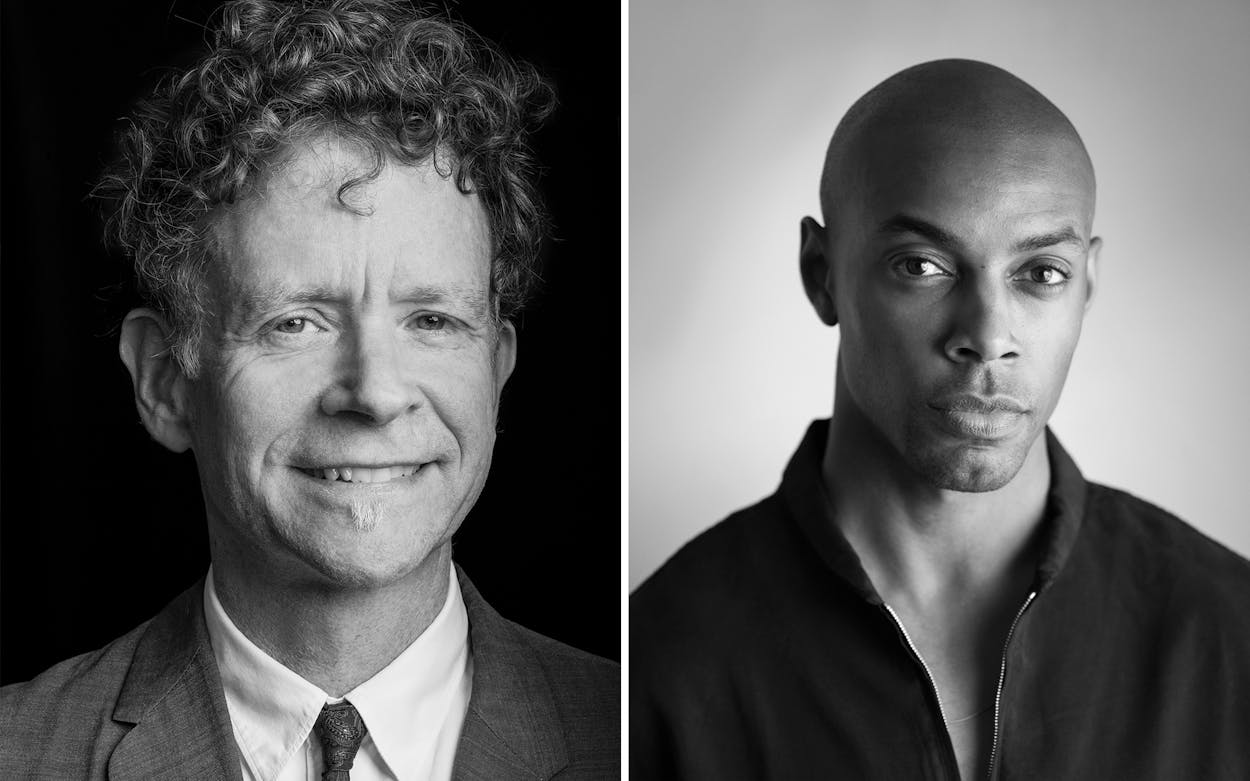Executive editor Michael Hall dropped out of law school at the University of Texas more than three decades ago, but he’s a familiar figure to leaders of the State Bar. They just granted Mike his third Texas Gavel Award, which each year honors journalism that “deepens public understanding of the legal system.” The bar recognized a pair of Mike’s stories from 2020 that exposed the challenges faced by two Texans who were convicted of murder, then were shown to be innocent by new evidence, yet struggled to be exonerated and allowed to resume their lives.
Rosa Jimenez and Lydell Grant spent a combined 26 years behind bars for crimes they didn’t commit. Jimenez, imprisoned for the 2003 killing of an Austin toddler, heard two different judges rule that her conviction was constitutionally flawed. Yet it wasn’t until a third judge agreed that she was finally released, early this year. Grant was convicted for a 2010 murder in Houston, but DNA evidence later convinced the trial judge, the district attorney, and the chief of police that he was innocent. Still, it took the Texas Court of Criminal Appeals another year and a half to finally exonerate him.
Mike reported for months on each story, tracking down retired judges, interviewing forensic experts, and telling the human stories of Grant and Jimenez and their families. Advocates for both credited Mike’s work with shining a public spotlight on their cases. His stories revealed how extraordinarily difficult it is for someone who is wrongly imprisoned to win release based on evidence that emerges after his or her conviction. When Mike won the top reporting prize at this year’s City and Regional Magazine Awards, the contest judges described his Jimenez story as a “gripping account that puts the entire legal system on trial.”
Mike no doubt would have made a fine lawyer, but I’m grateful he chose a different path, hiring on at Texas Monthly in 1997. His editor, features director J. K. Nickell, observes that “when Mike encounters someone who has been wronged by the justice system, he is relentless, obsessive—and deeply empathetic.” A former professional musician, Mike still plays in an Austin band called the Wild Seeds, and he often writes about music as well as the courts. “Musicians, like accused criminals, tend to be outsiders,” Mike says. “I like to delve into their worlds and come back with their stories.”
This issue’s cover story on Fort Worth singer-songwriter Leon Bridges was written by Casey Gerald, who grew up in Dallas and graduated from South Oak Cliff High School. Casey attended college at Yale, where he played varsity football and cofounded the Yale Black Men’s Union. He later earned an MBA from Harvard Business School and cofounded MBAs Across America, which enlisted business students and entrepreneurs to revitalize dozens of communities, including in Texas.
J. K. and I and several of our colleagues are fans of Casey’s TED talks and his writing, including his acclaimed 2018 memoir There Will Be No Miracles Here. J. K. and senior editor John Spong pitched him a couple of potential assignments, and he eventually felt compelled to write about Bridges. “Casey’s intellectual firepower and his singular voice are on full display in this story,” says J. K. While celebrity profiles often come across as canned exercises in public relations, J. K. adds, “Casey got Bridges to open up about his inner struggles. His story is a deeply human work of art.”
Casey said that, while driving away from Bridges’s home in Fort Worth, he mused about “the little miracle of the two broke and lonely Black boys that Leon and I had been, now taking up all this space in somebody’s magazine. I hope some kids like us will read this profile and know that their biggest, freest life is possible too.”
I share that hope and urge you to let me know what you think of Casey’s story and the rest of this issue.









